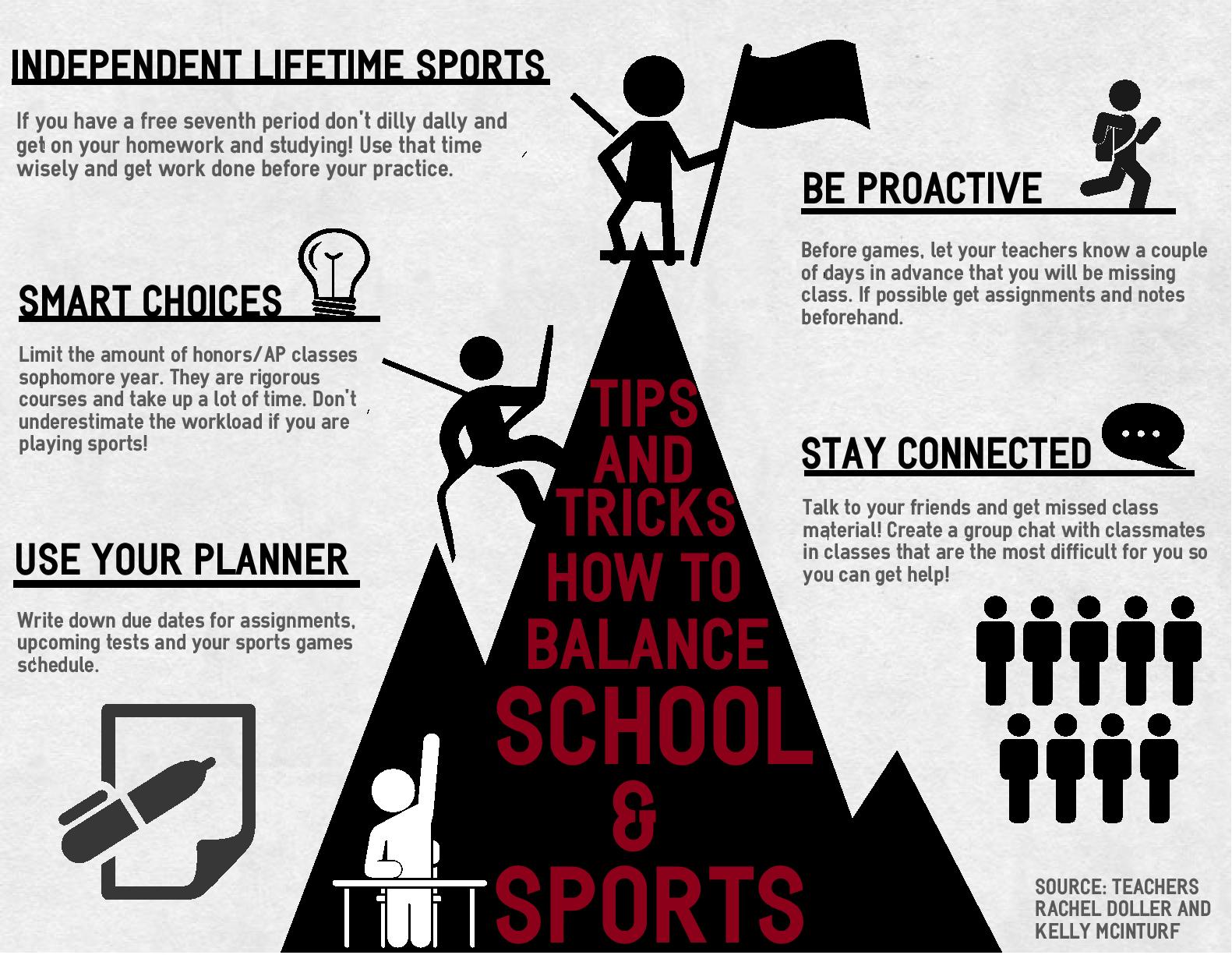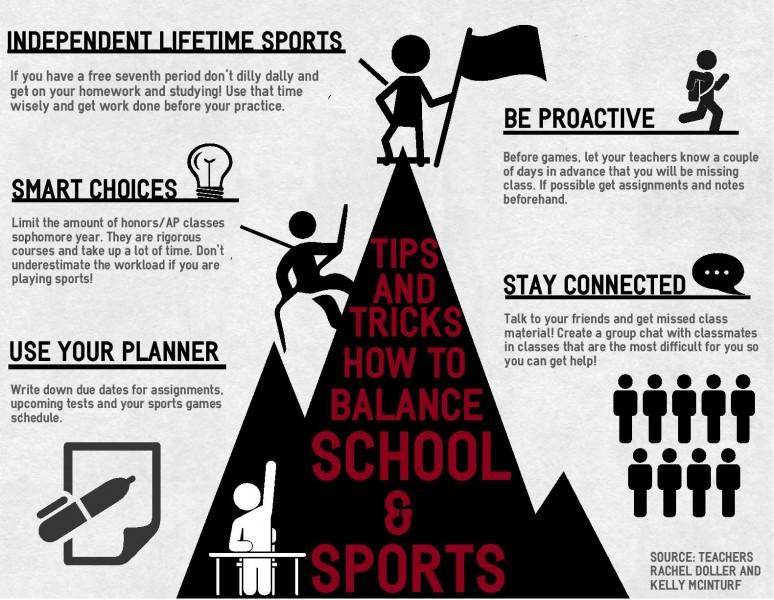How to juggle school and sports
By Jeanne Kim and Anna Gao,
Bluedevilhub.com Staff–
In the middle of a math lecture, a group of students in track and field start to pack away their school supplies and shuffle quietly out the door. A few students near the back whisper “good luck” before the door swings shut.
For students like junior Sofia Castiglioni, this interruption of class is a common occurrence in the school week. Participating in sports–Castiglioni runs track and cross-country–forces athletes to miss class and allocate less time to schoolwork, which can cause stress among students as they scramble to get work done and stay caught up.
Teachers at Davis High are aware of the many complications that come with sports, but inevitably the education of the students is in the students’ own hands.
“Many of us teachers have close to 160 students and we cannot remember that one person missed sixth period due to a sports commitment,” Spanish teacher Brittany Deibert (now on a leave of absence) told The HUB last year. “They need to be self advocates, and that may mean stopping by at lunch or after school to get help on subjects they missed or making up work.”
Since practices are usually five days a week and last around two hours, students do not always have enough time at night to get homework done.
That’s why many students take Independent Lifetime Sports, which leaves students with a free seventh period and allows them to miss less class for sports activities. This usually creates a pocket of time between school and sports practice; junior Maya McHale says this free time usually lets her complete “one or two classes worth of homework.”
Student-athletes who want to stay on top of their work should also let their teachers know of sports conflicts beforehand, according to World Civilization teacher Kelly McInturf.
“The schedule, especially for school teams, is passed out at the beginning of the season. Be proactive and talk to teachers about when you will be gone. You won’t always be able to get work ahead of time, but at least you’ll have a better idea on what you might need to do in order to be caught up,” McInturf said.
If athletes follow those guidelines, handling sports and academics is manageable.
“I made sure that even if I skipped class for a track meet, I would do homework on my own so that I wouldn’t fall behind in class,” Castiglioni, now in the middle of the cross-country season, said about last spring. “I also made arrangements for transportation so that we could leave after math in time to compete–the bus usually leaves early so that people in the first events have plenty of time to warm-up, but if you’re not in the first events you can usually leave a little later, it just takes extra planning.”
However, it may still be hard for students to stay committed to a team as well as their education. Even though coaches at DHS look for dedicate athletes, many agree with teachers that school should be prioritized.
“Keep a balance to your life; your academic calendar has to be your priority, everything else is secondary,” said wrestling, football and badminton coach Ty Brown. “Be prepared to make sacrifices so that you can excel both in the classroom and on the field.”
Deibert agrees with Brown.
“Most of us will not be professional athletes, and, in the end, that high school diploma will be more valuable to us then our time spent on a sports team when it comes to our future endeavors. I think it is important to balance sports and academics and in the end put academics first,” she said.
But prioritizing is easier said than done. For many students, the stress levels increase during the sports season.
“It makes life much more stressful. I feel more stressed during the cross-country season because I don’t have as much time to do homework and then I have to stay up later and I’m more tired,” junior Emily Talbert said.
In addition, not all games are close by. Extra travel time in some sports makes it hard for DHS athletes to complete their assignments.
“Sports give me a lot less time to do homework especially when we have late away games, which makes me more stressed,” junior soccer player Andrea Zheng said.
Junior Peter Zhu, however, says that sports actually “lower my stress levels.”
“It gives me two hours a day where I can just have fun and take my mind off of school and my personal problems and it’s actually really nice. At track, I’m surrounded by some of the most amazing people I’ve ever met,” he said. “So like contrary to what tons of people think, sports actually decrease stress for me.”
And there are benefits to participating in sports.
“It really helps [students] learn to prioritize, and understand time management skills that are needed in college and future life,” said women’s lacrosse coach Jenn Morris. “When you only have certain windows of time to get your schoolwork done, you learn to procrastinate less and focus on the task at hand. High school athletes tend to do very well in college because they are used to having a busy schedule.”
Sports and academics can go hand in hand if students know what they are signing up for prior to the season.
“Be prepared to make sacrifices so that you can excel both in the classroom and on the field,” Brown said.
Junior Tessa Malone participates in many sports throughout the year while still staying on top of her school work. Click below to hear techniques she uses to stay caught up.





